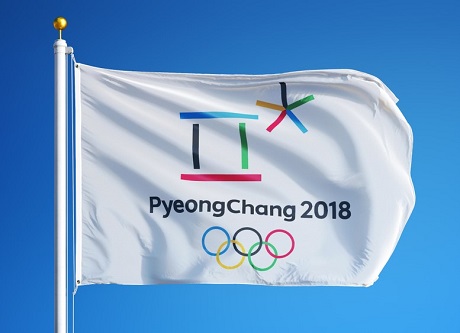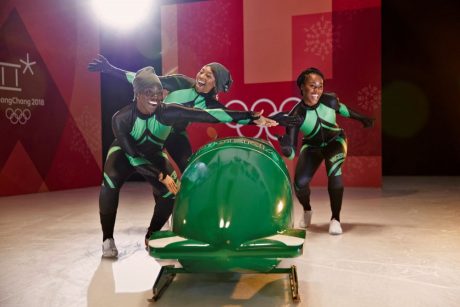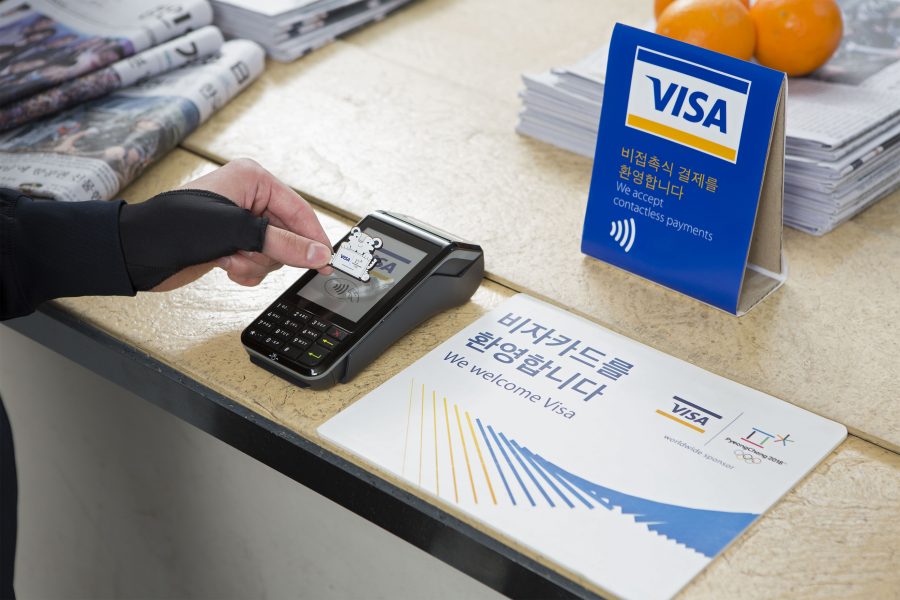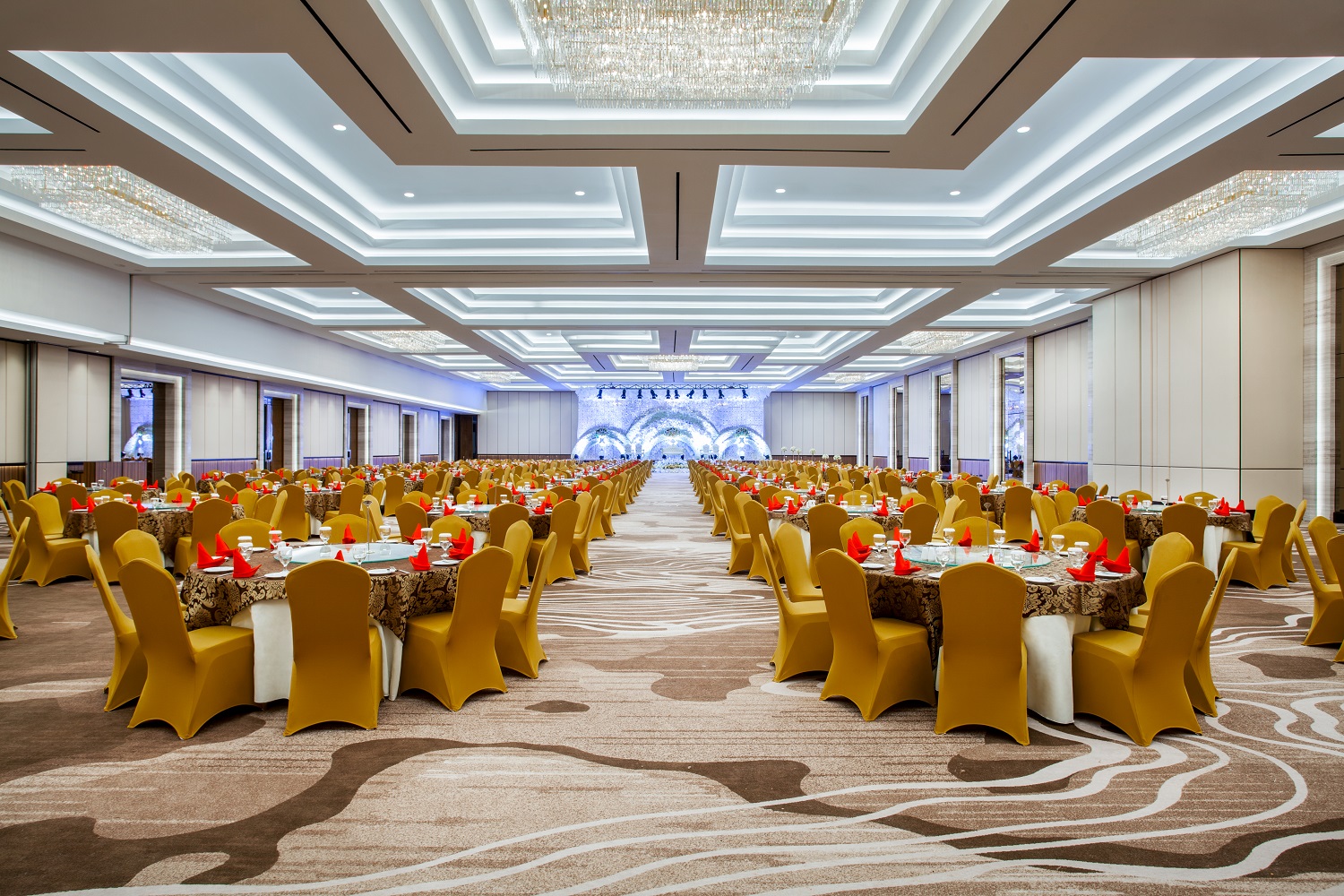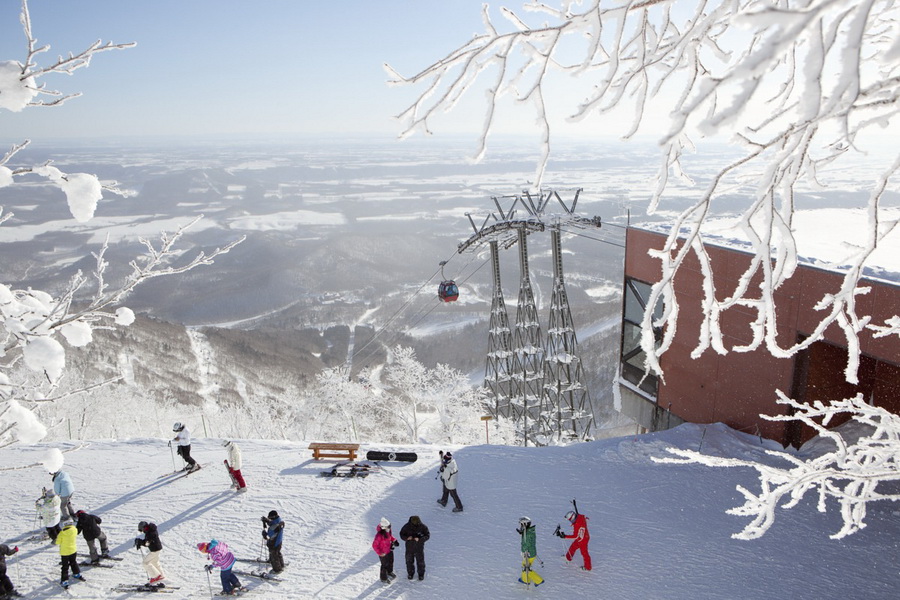Search Results forPyeongChang 2018
What travellers need to know about the PyeongChang 2018 Olympic Winter Games
Held at the Pyeongchang Olympic Stadium, PyeongChang 2018 is an ongoing international multi-sport event that features the best winter sports athletes from around the world. It happens every four years and it will run from 9-25 of February 2018. This year, the event takes place at Pyeongchang, a county in the province of Gangwon-do in South Korea. It's the country's first time to host the Winter Games, and its second time to host an Olympic event. Pre-game tensions The Korean Unification Flag The winter games this year were affected by tensions between South Korea and North Korea. There was a missile crisis early on, where the latter showed aggression through the testing of its nuclear capabilities. These tests led to security concerns, causing several countries to skip the games. Although in January, after the first high-level talks between the two countries, North Korea surprisingly agreed to participate. The two countries came together and even agreed to form a unified women’s hockey team. It was a historical event, not only to the sports community but in the political landscape as well. During the opening ceremony, the teams representing both countries marched waving a Korean Unification Flag. Good to know before making the trip If you’re planning to go the event, it’s best to check with the country's official website first. It will give you all the information you need, from local laws to the best destinations and travel tips. Make sure to pack warm clothing and comfortable shoes to wear because you're most likely going to do a lot of walking. The average temperature in Pyeongchang right now is 3 degrees Celsius with gusts of winds whipping up to 45 miles per hour. The Winter Olympics is supposed to be cold so better come prepared for it. To enter South Korea, you’ll be needing a valid passport of course, and if you’re staying for less than 90 days, you won’t have to worry about needing a tourist visa. How much does it cost to watch? Tickets for the winter games range from around USD $20 to $800. It varies depending on what event you’re going for and the demand for its tickets. For example, tickets for the figure skating finals are expected to be the most expensive ones at the event, along with the men's hockey finals. Maia Shibutani and Alex Shibutani of the United States compete in the Figure Skating Team Event The best events Each day is filled with exciting sporting events, but it’s best to attend the opening and closing ceremonies because they’re always a spectacular show. Finals are also happening towards the end so better save your time for those big games. The biggest stars to look for in the events are Shaun White in the men's halfpipe finals, Chloe Kim in the women's halfpipe finals, Mikaela Shiffrin in the slalom finals, and Lindsey Vonn in the downhill ski finals. There are 102 events in seven different sports, which are divided into 15 different disciplines. Places to stay If you do a search on Google, it will show you hundreds of hotels in Pyeongchang but the best ones are obviously closer to the games. Their prices have probably skyrocketed by now, so I’m hoping that you’ve already booked, or, you’re reading this just because you're curious about the Winter Olympics. The hotels closest to the games based on my search on Google Maps are Pinkhouse Pension, Jangpyeong Motel, Spring Summer Fall Winter Pension, Kismet Cottage, Fairy & Woodcutter Pension, Phoenix Pyeongchang, The White View Pension, and more. You may also check out for other places to rent close to the games. Transportation Getting around Pyeongchang can be a hassle, but only when you’ve come unprepared. There are a few ways you could get around the area and the ones worthy to check out are the city bus lines. These may not be accessible to all of the areas but don’t worry because there are taxis roaming around. Just try to avoid the black ones if you're pinching pennies. They're deluxe taxis which charge higher for premium services. Also, when you arrive there, try to pick up a T-Money card. You'll be using it on public buses and subways, and it will also save you the hassle of paying with cash for every single ride. Historical landmarks and other places to visit Aside from the winter games, you can also visit a number of historical landmarks in Pyeongchang. To mention some, there’s the Hyoseok Cultural Town, Baengnyong Cave, Potatoflower Studio, Eoreumchi Village, Woljeongsa Temple, Herbnara Tourist Farm, Jeonggangwon, and the Korea Botanic Garden. You may also choose to visit Seoul for more historical areas that can be found in the capital city during your stay. Oh, and don't forget to say Annyeong!
PyeongChang 2018: Hilton Win More For Big Dreams
As the official hotel partner of the Chinese Olympic Committee, Hilton kicked off the "Win More For Big Dreams" campaign in Beijing, showcasing its support for the Chinese Sports Delegation as they compete in the PyeongChang 2018 Winter Olympic Games. The hotel group encourages Team China fans to join together, share in China's Olympic dreams for honours and cheer on its athletes. Hilton has served as a dedicated partner of the Chinese Olympic Committee since 2011. This year, the hotel group will team up once again with the Committee to provide hospitality support for the Chinese Sports Delegation and the China House in PyeongChang in a number of ways. "Hilton is honoured to continue its proud support of the Chinese Olympic Committee in 2018, highlighting its commitment to support the people of China, the Olympic Movement, and the athletes who aspire to achieve the China dream," said Wendy Huang, senior vice president and commercial director, of Greater China and Mongolia at Hilton. "While Hilton is sparing no efforts to support Team China and the China House in PyeongChang, providing exceptional experiences to every guest and Hilton Honours members, we are also calling on the fans in China to share their support for the Chinese Sports Delegation and 'Win More for Big Dreams'." Shen Xue and Zhao Hongbo, the first Chinese pair to win a gold medal at an Olympics for figure skating, attended the launch event together with their students Peng Cheng and Jin Yang. The latter pair won gold at the ISU Challenger Series Finlandia Trophy earlier this year. "Looking back at my time as a professional skater, I wished I could have won every single medal for my beloved country. Although there my career has a new direction, my dream remains the same." Zhao Hongbo, the current head coach of the Chinese figure skating team said, "There is one thing that has remained unchanged for me through all these years. That is the support of Hilton. What a privilege it is for me to join you here today, where I have the opportunity to share my dream and cheer for the Chinese Sports Delegation. I sincerely hope that we may all achieve our dreams." As the first and only multinational hotel group to sponsor the Chinese Olympic Committee, Hilton has worked together with the Committee all the way through the 2012 London Olympics, 2014 Sochi Olympics, and 2016 Rio Olympics, providing meticulous care for Team China in every China House. With the launch of the "Win More For Big Dreams" campaign, the hotel group has built up a platform for Chinese guests and Hilton Honors members to cheer for Team China and share the joy brought by the Olympic Games.
PyeongChang 2018: Could this be Cool Runnings 2?
Visa have announced the addition of three athletes from the Nigerian Women's Bobsled Team to Team Visa, currently training to become the first ever African representatives, to qualify for the Olympic Winter Games in the sport of Bobsled. In a challenge reminiscent of Cool Runnings -- the 90's comedy classic based on the true story of Jamaica's national bobsled team's entry in the 1988 Winter Olympics --Bobsled pilot Seun Adigun, and brakemen Ngozi Onwumere and Akuoma Omeoga, combine their elite track backgrounds to chase their bobsled dreams. "Already the support and encouragement we have felt as part of Team Visa has been a dream come true," said Seun Adigun, driver of the Nigerian Women's Bobsled Team. "We are proud to be part of a team that shares our mission and has connected us with the resources we needed to reach our goal, and hopefully empower others to do the same." Without access to proper training equipment or valuable ice time to perfect their skills, the members of the Nigerian Women's Bobsled Team started their journey on the snow-less grounds of Houston, Texas, in a wooden sled they nicknamed 'The Maeflower.' Once the team set their sights on the Olympic Winter Games PyeongChang 2018, they established a crowdfunding website hoping to raise the much-needed funds to get to PyeongChang. Upon discovering the page, Visa was inspired by their story and determination to carve out a place in history and pledged to help solidify the team's trip to the Olympic Winter Games.
PyeongChang 2018: Will Visa’s new ‘wearables’ make the podium?
Visa, the payment technology partner at the Olympic and Paralympic Games, has introduced three commercially available wearable payment devices, for PyeongChang 2018. In the spirit of the Olympic Winter Games, Visa created NFC-enabled payment gloves, commemorative stickers and Olympic pins that allow fans and athletes to complete seamless and secure payments with a simple tap at any contactless-enabled terminal. "It is important to me, as a Winter Olympian, to work with a brand like Visa that not only supports a diverse group of athletes, but also enables an enhanced fan experience for those at to The Games," said Mikaela Shiffrin (main picture), USA Olympic gold medalist and Team Visa athlete. "Olympic pins are always the most coveted collectibles, these Visa pins really up the ante." About the products Commemorative Olympic Pin: Inspired by the long-standing tradition of collecting commemorative pins at the Olympic Games, Visa is bringing to market four unique lapel pins featuring custom PyeongChang 2018 designs to offer a payment-enabled collectable for fans and athletes to utilize on-site. Cost per pin is KRW5,000 plus desired embedded prepaid amounts valued at KRW30,000 or KRW50,000. Payment-Enabled Gloves: The average temperature in PyeongChang will be -- 4.8 degree celsius[1], so gloves will be a must-have! This payment glove will offer fans a way to pay safely and securely without having to get cold hands. The gloves contain a dual interface chip housed with a contactless antenna capable of completing purchases throughout official Olympic Venues and compatible readers globally. The gloves will come with embedded prepaid amounts valued at KRW30,000 or KRW50,000. Sticker: With a thin and flexible adhesive design and an embedded dual interface NFC-chip and antenna, these micro-tags can be attached to almost anything to make seamless payments in a moment's notice. The wearable sticker is available in denominations of KRW30,000, KRW50,000, KRW100,000 and KRW200,000. The collection includes 8 distinct designs including Soohorang -- the official PyeongChang 2018 mascot -- the Korean flag, and much more. "We are looking forward to transforming the payment experience for everyone who attends the upcoming Olympic Winter Games in PyeongChang," said Iain Jamieson, Korea country manager at Visa. "At Visa, we have been working tirelessly to ensure all of the Olympic venues are equipped with the very latest payment capabilities to provide the best experience possible for all those on-site."
Jakarta Palembang 2018: host hotel receives first MICE-fueled five-star hotel
Showing big potential for MICE, Wyndham Opi Hotel Wyndham makes its inaugural launch in Palembang, Indonesia with the opening of Wyndham Opi Hotel, the new 5-star hub of the city. Major sporting events have always had a correlational effect to hotels’ ADR. We’ve seen it in PyeongChang 2018, as South Korea welcomed approximately 1.57 million visitors; we’re about to see it happen at the 2018 FIFA World Cup Russia, in which Moscow expects more than a million fans to watch the games; and in Palembang, Indonesia, where Wyndham has opened the city’s first 5-star hotel, just in time for the 2018 Asian Games. “The spotlight will be on Palembang during the 2018 Asian Games and we couldn’t be more proud to showcase our latest five-star hotel to athletes, dignitaries and guests travelling for the sporting event,” said David Wray, vice president acquisitions and business development, Wyndham Hotel Group, South East Asia and Pacific Rim. The 2018 Asian Games will be held from 18 August to 2 September. Athletes will compete in 47 sporting disciplines, attracting more than 15,000 delegates from 45 countries. Earth and neutral tones dominate the Junior Suite The new Wyndham Opi Hotel Palembang is located in the Jakabaring precinct, adjoining the OPI mall complex, featuring retail outlets, a cineplex, local eateries and a department store. The upscale hotel will offer direct access to the Light Rail Transit that links guests to the Sultan Mahmud Badaruddin II International Airport, and the Jakabaring Stadium in just about five minutes. With 257 rooms and its strategic location, Wyndham Palembang will be a 5-star hub in the city. Six room categories are available, from Superior Rooms with ergonomic workspaces to the Presidential Suite with two bedrooms and an open-plan living room with living, dining and kitchen spaces. The hotel’s design features neutral earth tones, accented with a variety of textures and dark bronze contrasts. And to connect guests with the destination, each room is decorated with a songket, a traditional textile made by local Palembang artisans. The Deluxe King Room with views of Palembang To hold big events, Wyndham Palembang also offers the city’s largest convention facility. The business hotel offers two ballrooms and six meeting rooms totalling 2,260 square metres. The largest pillarless ballroom seats up to 2,500 delegates and is equipped with smart audio-visual technologies that support a variety of lighting installations for events ranging from exhibitions to weddings. The six smaller flexible meeting rooms can be reconfigured for seminars, board meetings or social events. Wyndham Palembang's ballroom is the largest in the city Located at lobby level, the 9 Rivers all-day dining restaurant offers a sumptuous buffet offering a selection of traditional Indonesian dishes, an egg station, pancakes and other international favourites. The Lotus Lounge offers a tapas menu and an extensive range of beverages in an area with flexible seating for casual business meetings, afternoon tea, or drinks after-hours. "Leading into and beyond the Games, Wyndham Opi Hotel Palembang is the perfect base for both business and leisure" Wray concluded: “Leading into and beyond the Games, Wyndham Opi Hotel Palembang is the perfect base for both business and leisure. The hotel’s stunning design, excellent leisure and conference facilities, and exceptional location will offer guests an unparalleled hospitality experience.”
South Korea Templestay programme ushers the new year
The Cultural Corps of Korean Buddhism is a network of about 130 temples throughout the country which keep the richness of traditional Korean culture and history alive. All year long, the 'Land of the Morning Calm' offers ‘Templestay’ programmes for visitors who wish to experience temple life in South Korea. South Korea ushers 2018 with 'Welcoming the Sun' Templestay programme And from 29 December 2017 until 01 January 2018, 56 Templestay monasteries invite visitors from all over the world to open 2018 with a one-of-a-kind celebration. Dubbed 'Welcoming the Sun,' the programme encourages guests to start the year with the traditional Buddhist values of reflection, love of nature, and a return to the simple life. This Templestay experience allows visitors to join various activities to empty the mind and bring in blessings. These include the lighting and temple bell-striking ceremonies, meditation, having a conversation with a monk over tea, and bowing 108 times. For guests who wish to reflect at their own leisure, a special programme to watch the first sunrise of 2018 will be held at mountainside temples facing the East Sea and Mt Seorak. These include Baekdamsa, Bohyunsa, Samhwasa, Sinheungsa (Sokcho), and Woljeongsa in Gangwon-do Province, the location of the PyeongChang 2018 Winter Olympics and Paralympics. Of course, the highlight of any Templestay experience is the inclusion of Korean temple food. These vegetarian meals have gained fans all over the world because they are prepared without meat, fish, or 'osinchae' -- vegetables considered the 'five stimulants' in Korean culture. Buddhists in the country believe that eating green onions, garlic, chives, wild chives and heunggeo (a kind of dropwort) 'hurts' the body, so they do not eat these vegetables. Let the monastic lifestyle of South Korea's Templestay programme allow you to enter the new year with an openness of self. For information about the ‘Welcoming the Sun’ New Year 2018 Templestay experience, or to simply learn more about the Templestay programmes, visit https://eng.templestay.com/. Alternately, follow the official Facebook page of the Cultural Corps of Korean Buddhism at www.facebook.com/templestaykorea.
Winter sports to head east following two Asian Olympics
Skiing is rising in popularity among Chinese tourists The focus of the global winter sports industry will shift to the Far East in future, following the hosting of two Winter Olympic Games in the region. This is the view of Chinese sports industry expert, Yi Jiandong, who told Xinhua that Asia's huge population, rising affluence and tourism boom would help South Korea and China capitalise on the hosting of the Winter Games in 2018 and 2022. Pyeongchang is gearing up to host next year's Olympics, while Beijing has been selected as the subsequent host city. "China expects the 2022 Olympics to usher in a new era for its winter sports efforts. It is an unprecedented opportunity for its winter sports industry," Yi was quoted saying. "With Pyeongchang 2018 and Beijing 2022, the centre of winter sports will move from Europe and North America to Asia." Late last year, the Chinese government unveiled plans for the widespread development of new winter sports infrastructure, with 450 new skating rinks and 300 ski resorts to rise across the country, most of them in time for the 2022 Winter Olympics. And domestic winter sports tourism is reportedly growing in popularity in China. "Previously, China didn't have competitive winter tourism destinations compared with countries such as Switzerland. Now the situation is totally different," Xu Xiaolei of China Youth Travel Service told the China Daily. "Tourists from southern provinces like to experience a chilly winter." China's is already home to the world's highest ski resort, located near Lijiang in Yunnan province, and it is planning to develop an even higher resort in Tibet in future.
5 reasons why Japan and IOC insist on holding the Tokyo Olympics
Japan is suffering another spike of COVID-19 infections that even the island paradise of Okinawa is under a state of emergency. The fourth wave, once again, raised concerns on the upcoming Tokyo Olympics. According to Channel News Asia, the latest polls revealed that 60% and 80% want the games either cancelled or postponed, respectively. We’ve been here before and I recognised that tree, a year after its postponement, officials keep going back and forth on whether the Olympics will be held. With less than two months on the clock, the latest statement from the International Olympic Committee (IOC) said that the Olympics will push through even though Tokyo is under a state of emergency which caught the ire of some Japanese. However, cancelling the Tokyo Olympics is more than about safety concerns; it involves politics and TONS of money! It’s in IOC’s hands Legally, it is not up to Japan and the Tokyo government to cancel the Olympics. IOC owns the games and Japan is the host. IOC can only end the contract. But IOC president Thomas Bach said that the games will go ahead regardless of the fourth wave. While Japan could break the contract and cancel the games, it is hesitant to do so because of the cost since everything has been prepared for the games and athletes, organisers, and suppliers are just waiting for the go signal. Too much money has been invested In 2019, all preparations have been set and Japan has been actively promoting the Olympics. Everyone is excited and is hoping for a return on their investment. Unfortunately, the COVID pandemic happened in 2020, months before the games. According to an estimate conducted by professor emeritus Katsuhiro Miyamoto of Kansai University and reported by the NHK, the cost of delaying the 2020 Olympics by one year will be JPY640.8 billion (USD5.8 billion), taking maintenance expenditures for the unused facilities into account. A complete cancellation would cost Japan JPY4.52 trillion (USD41.5 billion), based on operating expenses and loss of tourism activity. Further delaying the Olympics will incur millions of loss. Japanese corporate sponsors have fuelled another USD200 million on top of the record USD3.3 billion already committed, while there is a plan for sharing the nearly USD300 million in additional costs incurred due to postponement between Tokyo, the central government and local Olympic organisers. Officially the tab for the Games comes to about USD13 billion, but a government audit published last year pegs the real tally at USD28 billion. The IOC also has things at stake. It is keen to press ahead with the sporting event because most of its revenue (about 90%) comes from selling broadcasting rights and sponsorships. Prestige and politics This is an election year for Japan and is crucial for current Prime Minister Yoshihide Suga, and the ruling party ruling Liberal Democratic Party (LDP), who has been receiving low approval ratings recently. The LDP has been in power for 61 of the last 65 years. However, this may change if they do not handle the current health crisis right. Sporting events like the Olympics are known as money pits, but from the leaders’ perspective, hosting these global events is more about international prestige than profit. The 1964 Olympics in Japan marked the end of the country’s post-war image and received international recognition and status once again. The most recent 2018 Pyeongchang Winter Olympics in South Korea showed as a glimpse of the reunification of the North and South marching under one flag after it was not used since 2009. The 2008 Beijing Olympics saw China’s great power status. Its upcoming hosting of the 2022 Winter Olympics could further elevate its status being the only city to have hosted both winter and summer games. For leaders, the Olympics seem to be a harbinger of good fortune and a legacy they could not miss. One for the books After being restricted and locked down for more than a year, don’t you want to enjoy yourself in a post-covid-19 coming-out party? Shaking off the lockdown blues and celebrating the Olympic values is the best way to herald a new era, if possible. There is no doubt that this Olympics is one for the books right after the global pandemic. It would be a great PR for Japan and the current leadership if it will be able to hold the games safely without a major outbreak of infection. The competitors will be vaccinated and there will be changes in the operating procedures. It is also an opportunity to restart the severely affected tourism industry. It is still unclear whether spectators will be allowed in the games and the organisers will most likely decide at the last minute. Latest reports claimed that they are leaning towards allowing fans to watch the event. Pride and honour Lastly, we have to consider the Japanese culture of keeping one’s word. Fulfilling one’s obligation is a big deal in Japanese culture and people often go at great lengths just to see it through. In Japanese culture, public failure and the disapproval of others are seen as particular sources of shame and reduced social standing. Therefore, the Japanese government wants to avoid losing face even though the public is overwhelmingly unenthusiastic towards the Olympics. In this case, it seems that the organisers are exhausting all possible options before they throw in the towel.
Taking the piste: Club Med reveals the habits of Asian skiiers
Luxury ski firm Club Med has revealed the habits and influences of 5,500 winter sports lovers, across 11 markets in the China and APAC regions, in its 2018 Snow Holiday Report. Among the findings in the report, compiled and put together by independent pollsters Insightzclub, were that 200 million people from Asia Pacific have taken a snow holiday in the last three years. Japan and South Korea destinations top the region for snow holidays, while Switzerland (iconic home of the sport) stood came in as the third best destination. “The market is evolving rapidly in line with Asia’s growing affluence” Xavier Desaulles, CEO of Club Med, East and South Asia & Pacific said: “This research is a timely insight into the mind of today’s Asia Pacific consumers who enjoy a snow holiday. The market is evolving rapidly in line with Asia’s growing affluence and interest can only grow fuelled by back-to- back Winter Olympics in PyeongChang and Beijing. "new mountain resorts regionally and globally" “This survey is an essential new tool that will allow us to inform and service our clients and regional partners as we understand how their habits and needs are developing and as we open new mountain resorts regionally and globally,” he added. The snow holiday market has seen rapid growth in Asia Pacific in the last three years with an estimated universe of 238 million travellers including 138 million alone in the last 12 months. The numbers correlate with the region’s growing affluence and desire to explore the world in a more experiential and different way whether with family or friends. Not surprisingly, China is the largest market of snow enthusiasts followed by India and Japan. However, markets with little or no snow such as Hong Kong, Singapore and Indonesia are showing strong growth albeit from a smaller base as they seek more experience-based holidays and fresh, clean air. For more insightful discoveries check out the infographic below:
ForwardKeys: Bright outlook for global long-haul travel everywhere but USA
This year, everyone wants to be anywhere but in the USA. Or at least that’s what ForwardKeys, a Spain-based intelligence consultancy specialising in intercontinental travel bookings, forecasts in its latest report. David Tarsh, a spokesperson for ForwardKeys, said that its prediction is based on analysing at least 17 million flight booking transactions for future travel in a day. Given that ‘future’ in this case means Q1 2018, it looks like these months are going to be exciting for travellers and airlines all over the world, with long-haul flight bookings at 10% ahead of the same time period in 2017. The biggest winners in 2018 Definitely Asia and Australasia, where inbound bookings are up 12% from Q1 2017. Economic growth in Australia, New Zealand, India and China has increased demand for travel, with the Chinese being particularly aggressive to go as far as Canada, another big winner. Africa and the Middle East as well, where inbound bookings are up 11.9% from the same time period last year. For Africa in particular, this rise also applies to outbound travel. General economic recovery in Nigeria and South Africa, as well as the re-opening of Egypt to Russian tourists, have all helped make this possible. Continental Europe is another victor, where inbound bookings are 13.3% ahead of the same quarter in 2017. Russia leads the way, kicking both international and local tourism by virtue of hosting the FIFA World Cup. In the Americas, we are seeing extremes with overall bookings at 4.8% ahead of the same quarter last year – besides Canada, countries in Latin America are also expected to do well this year. Favourable bookings from Mexico and continuous double-digit growth in Argentina, Brazil and Chile are the biggest reasons for both regional and long-haul outbound travel from this side of the world. In particular, Argentina is currently seeing a whopping 22.9% increase in long-haul departures. The biggest losers in 2018 In Asia, it’s South Korea. The poor country is still reeling from the wintery conditions of the THAAD missile crisis, to the point that neither a recent thaw in diplomatic relations nor holding the Pyeongchang Winter Olympics on Chinese New Year can cause long-haul bookings to rebound like they normally would in other years. The UK is also expected to grow less well, with the rise in the value of the £ Sterling translating into dampened enthusiasm for travellers to enter the kingdom. But the worst of the lot is definitely the USA, where bookings for international arrivals are just a measly 2.6% ahead – lower than average for the entire American continent. Always take forecasts with a grain of salt Of course, all this optimism comes with some caveats. First, Tarsh disclosed that the benchmark for the above estimates is Q1 2017. Looking back on the year that was, Asia Pacific enjoyed a rise in intercontinental air travel at 4.4% ahead of Q1 2016. Africa and the Middle East also experienced an 11.5% increase in inbound flight arrivals from the same time frame in the previous year. Europe had the highest lift at 13.3%, helping make up for the standstill experienced in the Americas at 0.1% up on 2016. The second caveat shared by Tarsh is that ‘all data shared by ForwardKeys are in terms of future travel, comparing the current situation to the equivalent time frame a year before.’ And given that the benchmark is 2017: Last year (2017) was outstanding for long-haul travel, with global growth at upwards of 7.0% considering the economic and political uncertainty throughout its 12 months. This makes the prior year (2016) pale in comparison and is understandably a tough act for 2018 to follow. Third: travel is generally expected to grow at 4% per annum, and volatility is expected in the long-haul figures more than they are for closer inbound or outbound trips. Other circumstances outside of ForwardKeys’ predictive science may affect bookings, or the lack thereof, closer to the date of travel being analysed. At the time this report was being compiled, the political situation of Argentina was not yet determined to have any effect towards inbound or outbound travel from the country. With very big events like the Olympics, travellers generally book early, but price jacking and other factors mean we won’t necessarily see more people flying in. Tarsh explained, ‘If people have booked early, it can make that period look fantastic, but there is no way to fully predict whether or not more bookings materialise closer to the date of travel.’ That said, the big picture shows a positive outlook for intercontinental flights in early 2018. Stay tuned as we check back with ForwardKeys midway through the year to see which predictions have taken hold and which have gone so far out of range.
No companies found matching your search.
Return To HomeNo Event found matching your search.
Return To Home
